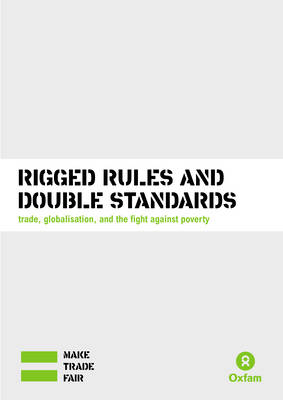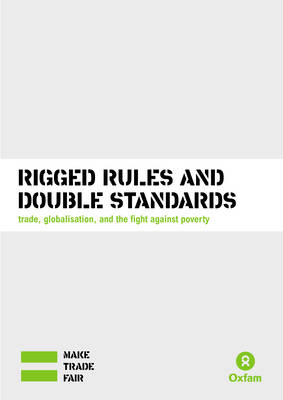
- Retrait gratuit dans votre magasin Club
- 7.000.000 titres dans notre catalogue
- Payer en toute sécurité
- Toujours un magasin près de chez vous
- Retrait gratuit dans votre magasin Club
- 7.000.0000 titres dans notre catalogue
- Payer en toute sécurité
- Toujours un magasin près de chez vous
33,45 €
+ 66 points
Description
Trade is one of the most powerful forces linking our lives, and a source of unprecedented wealth. Yet millions of the world's poorest people are being left behind. Increased prosperity has gone hand in hand with mass poverty. Already obscene inequalities between rich and poor are widening. World trade could be a powerful motor to reduce poverty, and support economic growth, but that potential is being lost. The problem is not that international trade is inherently opposed to the needs and interests of the poor, but that the rules that govern it are rigged in favour of the rich. If Africa, East Asia, South Asia, and Latin America were each to increase their share of world exports by one per cent, the resulting gains in income could lift 128 million people out of poverty. In Africa alone, this would generate USD70bn - approximately five times what the continent receives in aid. In their rhetoric, governments of rich countries constantly stress their commitment to poverty reduction. Yet in practice rigged rules and double standards lock poor people out of the benefits of trade, closing the door to an escape route from poverty. Reform of world trade is only one of the requirements for ending the deep social injustices that pervade globalisation. Action is also needed to reduce inequalities in health, education, and the distribution of income and opportunity, including those inequalities that exist between women and men. However, world trade rules are a key part of the poverty problem; fundamental reforms are needed to make them part of the solution. Oxfam's campaign, Make Trade Fair, aims to change world trade rules so that trade can make a real difference in the fight against global poverty. This report gives comprehensive research findings and analysis, presenting a powerful case for changes in trade laws, and a reform agenda to make these changes happen.
Spécifications
Parties prenantes
- Auteur(s) :
- Editeur:
Contenu
- Nombre de pages :
- 272
- Langue:
- Anglais
- Collection :
Caractéristiques
- EAN:
- 9780855985257
- Date de parution :
- 15-12-04
- Format:
- Livre broché
- Format numérique:
- Trade paperback (VS)
- Dimensions :
- 208 mm x 296 mm
- Poids :
- 693 g

Les avis
Nous publions uniquement les avis qui respectent les conditions requises. Consultez nos conditions pour les avis.






